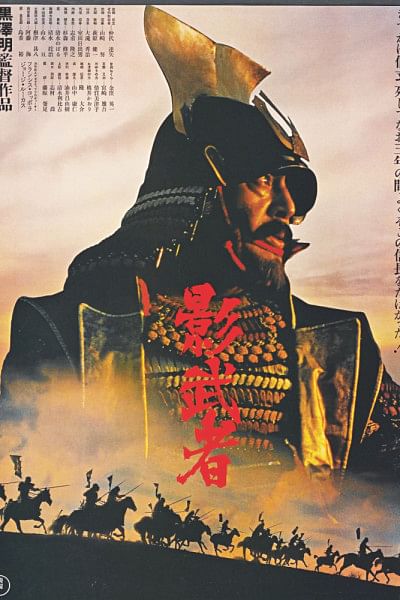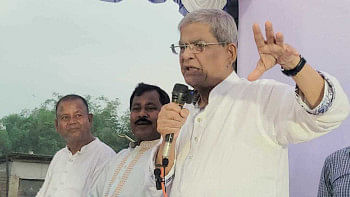Kagemusha (1980)

Director: Akira Kurosawa
Writers: Masato Ide, Akira Kurosawa
Stars: Tatsuya Nakadai, Tsutomu Yamazaki, Ken'ichi Hagiwara
Runtime: 162 minutes
Plot: A petty thief with an utter resemblance to a samurai warlord is hired as the lord's double. When the warlord later dies the thief is forced to take up arms in his place.
Review: Kagemusha is partly the story of the thief who slowly acquires the grandeur and vision of the man he is impersonating, partly the story of Shingen's ambitious son, whose claims to leadership had been ignored by his father, and partly the story of the evolution of modern Japan. However, Mr. Kurosawa does not allow one of these stories to dominate. Kagemusha, though so elegantly directed that even perfunctory shots seem integral to the film's ritual, has no more narrative drive than an entry in an encyclopedia. The movie frequently cuts away to scenes in the enemy camps, but if you're following the subtitles, you may not always know where you are. About halfway through, it becomes apparent that the specific details are less important than the overall panorama, the accumulation of scenes of court politics, of Kagemusha growing into his role, and of furious, life-and-death battles, all of which are observed as if from another planet.
What one carries away from this film is not any prettified idea of the dignity of man but of man in impotent relation to historical forces over which he has little if any control. There is beauty in Kagemusha but it is impersonal, distant, and ghostly. The old master has never been more rigorous.
Reviewed by Mohaiminul Islam

 For all latest news, follow The Daily Star's Google News channel.
For all latest news, follow The Daily Star's Google News channel. 



Comments